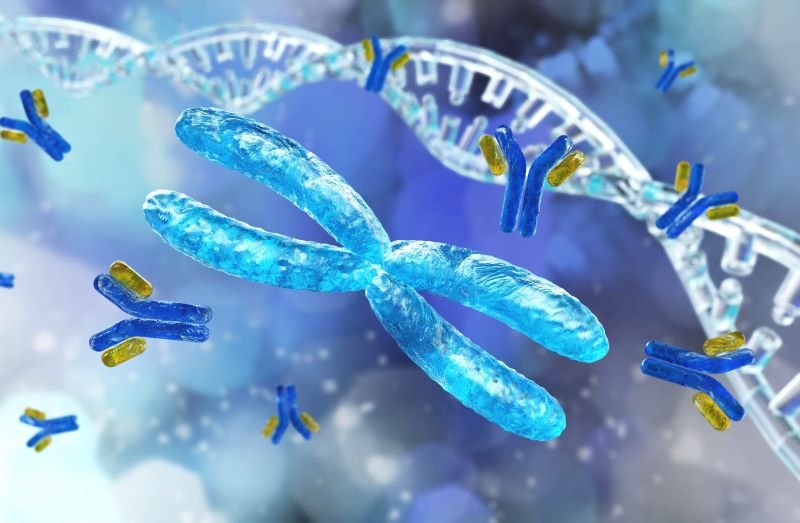Get Healthy!

- Amy Norton
- Posted September 19, 2023
Many Women May Overestimate Risks From Genes Tied to Breast Cancer
Women who carry mutations in genes known as BRCA have an elevated risk of breast cancer. But a large, new study suggests that risk may be lower than generally believed -- especially if a woman has no close relative with the disease.
The study, of more than 400,000 British adults, found that women who carried mutations in either of two genes -- BRCA1 or BRCA2 -- had a higher-than-average risk of developing breast cancer by age 60.
But the absolute risk was significantly lower than most previous studies have reported -- as low as an 18% chance when no first-degree relative has had breast cancer.
The findings, experts said, could help in giving women a more realistic view of their personal cancer risk.
And in an age where people are doing at-home DNA tests, the study underscores the importance of medical guidance in that process.
"Speak to your clinical team and discuss your personal risk profile in light of your family history, or lack thereof," said study leader Leigh Jackson, a lecturer in genomic medicine at the University of Exeter in England.
"This will help women to make more informed choices about their care," he said.
Researchers have known for years that certain mutations in BRCA1 and BRCA2 confer substantially higher-than-average risk of both breast and ovarian cancers.
The typical statistics found online are alarming: Half of women with a BRCA mutation will develop breast cancer by age 70, according to the U.S. Centers for Disease Control and Prevention. The American Cancer Society points to up to 70% chance of the disease by age 80.
Meanwhile, individual studies have estimated the chances are as high as 85% by age 70.
Faced with those odds, many women who test positive for BRCA mutations opt to take preventive action. Often, that means a double mastectomy; about half of U.S. women who carry BRCA mutations do so, according to Jackson's team. Some other women choose to take medications that block the action of estrogen in the body.
But the new study, published Sept. 14 in the journal eClinical Medicine, paints a different picture of the average risk.
That's particularly true when a woman has no first-degree relative (mother or sister) with the disease, Jackson's team says: They estimate that those women have an 18% to 23% chance of developing breast cancer by age 60, on average.
When a first-degree relative has had the disease, the risks climb to a 24% chance of developing breast cancer by age 60 with BRCA2, and a 45% chance with BRCA1.
All of those risks are still higher than the norm: The average U.S. woman, for example, has about a 13% chance of developing breast cancer in her lifetime.
But they are also markedly lower than estimates from past studies.
Why the difference? It's due to the populations studied, Jackson said.
Older studies generally focused on select groups whose cancer risk was particularly high -- including women who undergo BRCA testing due to a strong family history of early breast cancer.
This study, Jackson said, came at things from a different angle.
It used data from the U.K. Biobank, a huge research project that has collected genetic and health information from about a half-million middle-aged and older U.K. adults. Jackson's team identified over 800 women who carried BRCA mutations, then followed their risk of developing breast cancer to age 60.
The findings offer "extremely important" information, said Dr. Susan Domchek, executive director of the Basser Center for BRCA at Penn Medicine in Philadelphia.
Domchek, who was not involved in the study, said that as more people undergo BRCA testing, it's critical to give them an accurate risk estimate -- with family history or lack thereof being key in the equation.
That said, the findings are not the final word, either.
The risks associated with BRCA mutations -- and other cancer genes -- are an evolving picture, said Joy Larsen Haidle, a genetic counselor at North Memorial Health in Robbinsdale, Minn., and a cancer expert with the National Society of Genetic Counselors.
A couple decades ago, Haidle said, the criteria for BRCA testing were very strict, zeroing in on those people most likely to carry a mutation.
But testing is happening on a much broader scale now, and will continue to expand -- including to the "worried well" who are paying for genetic testing on their own, Haidle noted.
For people who have concerns about their genetic risks, Haidle said the best course is to gather information about your family history of cancer -- ideally three generations back -- and talk to your doctor. From there, you may get a referral to a genetic counselor who can help in making decisions about testing, and how to interpret the results.
Even if women do an at-home DNA test, they would ideally seek genetic counseling if the result says they have a BRCA mutation.
But, Jackson noted, "we do have some anecdotal accounts of women progressing straight to surgery decisions, as they are already aware of BRCA and the ramifications, and don't believe they need further guidance."
More Information
The nonprofit Susan G. Komen has more on genetic testing for breast cancer risk.
SOURCES: Leigh Jackson, PhD, lecturer, genomic medicine, University of Exeter Medical School, Exeter, U.K.; Susan Domchek, MD, executive director, Basser Center for BRCA, Penn Medicine, Philadelphia; Joy Larsen Haidle, MS, CGC, genetic counselor, North Memorial Health, Robbinsdale, Minn., and cancer expert, National Society of Genetic Counselors, Chicago; eClinical Medicine, Sept. 14, 2023, online







